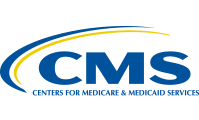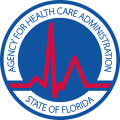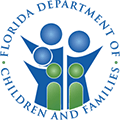What is Meth Abuse
Understanding Meth Abuse
Methamphetamine is an extremely potent stimulant with great potential for abuse and addiction. The drug affects the central nervous system in a manner that stimulates the brain’s reward and pleasure center. Other names for the drug include crystal, chalk, ice, or simply meth. Originally used in the formulation of decongestants and inhalers for bronchial conditions, it soon became evident that the high risk of addiction was too much of a problem to continue using in over the counter medications. This drug causes the user to experience a sense of overall well-being, feel a loss of appetite, and become increasingly talkative and significantly more active than normal. It has longer lasting effects than amphetamine, is more harmful in terms of short and long-term effects, and loses its pleasurable effects after someone has been taking it for a significant period of time.
If you have been using methamphetamine for a period of time due to the pleasure you receive when using it, and have noticed you are not able to feel normal without it or are convinced you won’t be capable of functioning unless you take it, you may have developed an addiction. Perhaps you have found that you are spending a lot of time obtaining, using, or recovering from use of the drug, feel as if your relationships are suffering, or have noticed decreased productivity at work or school. You may also be experiencing negative health effects, such as infections at injection sites, lung problems, or heart palpitations. You may have reached a point where your life seems chaotic and out of control. If this is the case, we can help you. At North Tampa, we are here to support you and aid you as you begin your journey to recovery.
Statistics
Statistics of Meth Abuse
The estimated 12 month prevalence rate of methamphetamine use for adults in the U.S. was found to be 0.27%. Lifetime estimated use for adults was estimated to be 8.6%. There were no significant differences in methamphetamine addiction based on gender for lifetime usage, with rates for men estimated at 0.32% and estimates for women at 0.23%. However, the 3 year prevalence rates were found to differ by gender, with men showing higher rates of addiction (3.1%) than women (1.1%). The highest abuse rates were found in individuals between the ages of 18 to 25 who were not students (past year rates estimated at 2.4%) compared to students of the same age (past year rates estimated at .79%).
Causes of Meth Abuse
What are the Causes of Meth Abuse
Genetic: People with a first-degree relative suffering from an addiction are more likely to develop methamphetamine abuse. This effect is particularly strong when the relative was addicted to a stimulant. Also, studies have shown that inherited temperamental qualities have been associated with the development of methamphetamine abuse, including a preference for a high activity level and novel experiences, being less open to other people, and being less agreeable.
Physical: Dopamine, a chemical responsible for communication in the brain, has been linked to experiences of pleasure. Methamphetamine stimulates areas of the brain causing a large amount of dopamine to be released, leading to the brain’s reward center communicating a sudden rush of pleasure. This experience of exhilaration can lead to an addiction.
Environmental: Sometimes people experience a number of negative life events in a relatively short period and are unable to cope with them. Feelings of being overwhelmed may lead to a sense of hopelessness about the future. When this occurs, they may search for something to make them feel better or enable them to escape from their life for a while— which methamphetamine allows them to do.
Risk Factors: Risk factors for methamphetamine abuse include the long-term use of other stimulant drugs which are legally prescribed or obtained illegally, the slow increase of use over time, having a family history— including depression or other mood related disorders, and being diagnosed with attention deficit hyperactivity disorder (ADHD) or learning disabilities, especially when stimulants are used to treat these conditions.
Signs and Symptoms of Meth Abuse
Learn More About the Signs and Symptoms of Meth Abuse
Signs and Symptoms of methamphetamine abuse include:
Behavioral symptoms:
- Increased activity levels
- Hostile actions
- Invading others privacy
- Lying, stealing, or borrowing to obtain methamphetamine
Physical symptoms:
- Muscle tension
- Cardiac problems
- Loss of appetite and weight loss
- Loss of muscle strength
Cognitive symptoms:
- Paranoia
- Compromised judgment
- Impaired decision making
- Inability to plan
- Illusions or delusions
- Increased attention and focus
Psychosocial symptoms:
- Extreme elation and joy
- Anger outbursts
- Confusion/disorientation
- Anxiety
- Feeling numb emotionally
- Marital problems
- Social withdrawal and alienation
- Deciding not to go to social functions at the last minute or forgetting about them entirely
- Belonging to a peer group that engages in methamphetamine use
Effects of Meth Abuse
Understanding the Effects of Meth Abuse
There are numerous long term effects of methamphetamine use. These include:
- Impaired memory
- Emotional numbing of good and bad feelings
- Inability to function in a timely manner, which affects one’s home life, social life, and livelihood
- Worsening anxiety
- Increasing disorientation and confusion
- Sleeplessness for several days at a time, increasing problems with disorientation and confusion
- Serious mood disruptions
- Aggression and hostility
- Legal and financial problems
- Parkinson’s disease
- Skin lesions, leading to infections or scarring
- Tooth loss due to decay
- Malnourishment
Effects of Withdrawal and Overdose
Learn More About the Effects of Withdrawal and Overdose
When using methamphetamine due to its potency and speed of the effects, there is a high risk of overdose. Symptoms of overdose include:
- Agitation
- Chest pain
- Heart attack
- Heart stops (in extreme cases)
- Coma (in extreme cases)
- Decreased respiration
- Kidney damage with potential for kidney failure
- Paranoia
- Seizures
- Severe stomach pain
- Stroke
Additionally, when someone who is addicted to methamphetamine attempts to stop taking the drug or decrease the amount without medical assistance, withdrawal effects may occur, which include:
- Psychotic symptoms
- Severe depression
- Suicidal thoughts
- Need for more sleep
- Increased appetite
- Chills
- Sweats
- Nightmares
- Cravings
- Physical agitation or retardation
Co-Occurring Disorders
Treatment for Co-Occurring Disorders
There are a number of conditions found to co-occur with methamphetamine abuse. These include:
- Other substance use disorders – in particular those that have calming or sedating effects used to counter the negative effects of methamphetamine when it is wearing off
- Gambling habit disorder
- Major depressive disorder
- Dysthymia
- Post-traumatic stress disorder
- Attention deficit hyperactivity disorder (Adult onset)
- Antisocial personality disorder
- Cardiac problems due to increased stress on the heart











